State Performance Plan 2005-2012 - Part B - Arkansas Department Of Education Page 178
ADVERTISEMENT
 1
1  2
2  3
3  4
4  5
5  6
6  7
7  8
8  9
9  10
10  11
11  12
12  13
13  14
14  15
15  16
16  17
17  18
18  19
19  20
20  21
21  22
22  23
23  24
24  25
25  26
26  27
27  28
28  29
29  30
30  31
31  32
32  33
33  34
34  35
35  36
36  37
37  38
38  39
39  40
40  41
41  42
42  43
43  44
44  45
45  46
46  47
47  48
48  49
49  50
50  51
51  52
52  53
53  54
54  55
55  56
56  57
57  58
58  59
59  60
60  61
61  62
62  63
63  64
64  65
65  66
66  67
67  68
68  69
69  70
70  71
71  72
72  73
73  74
74  75
75  76
76  77
77  78
78  79
79  80
80 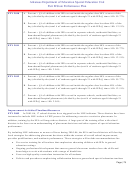 81
81  82
82  83
83  84
84  85
85  86
86  87
87  88
88  89
89  90
90  91
91  92
92  93
93 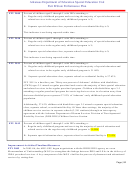 94
94  95
95  96
96  97
97  98
98  99
99  100
100  101
101  102
102  103
103  104
104 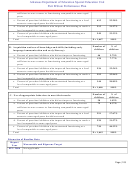 105
105  106
106  107
107  108
108  109
109  110
110  111
111  112
112  113
113 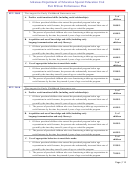 114
114  115
115  116
116  117
117  118
118  119
119  120
120  121
121  122
122  123
123  124
124  125
125  126
126  127
127  128
128  129
129  130
130 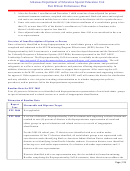 131
131  132
132  133
133  134
134  135
135  136
136  137
137 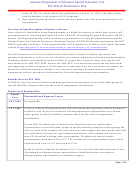 138
138  139
139  140
140  141
141  142
142  143
143  144
144  145
145  146
146  147
147  148
148  149
149  150
150  151
151  152
152  153
153  154
154  155
155  156
156  157
157  158
158  159
159  160
160  161
161  162
162  163
163  164
164  165
165  166
166 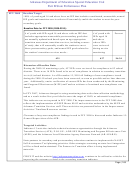 167
167  168
168 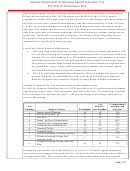 169
169  170
170  171
171  172
172  173
173  174
174  175
175  176
176  177
177  178
178  179
179  180
180  181
181  182
182  183
183  184
184  185
185  186
186  187
187  188
188  189
189  190
190  191
191  192
192 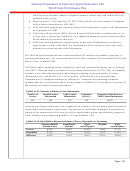 193
193 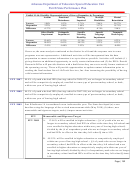 194
194  195
195 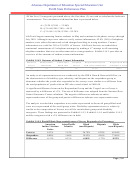 196
196  197
197  198
198  199
199  200
200  201
201  202
202  203
203  204
204 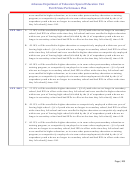 205
205  206
206  207
207  208
208  209
209  210
210  211
211  212
212  213
213  214
214  215
215  216
216  217
217  218
218  219
219  220
220  221
221 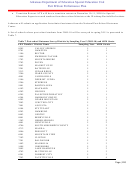 222
222  223
223  224
224  225
225  226
226  227
227  228
228  229
229  230
230  231
231  232
232  233
233  234
234  235
235  236
236  237
237  238
238  239
239  240
240  241
241  242
242  243
243  244
244  245
245  246
246  247
247  248
248  249
249  250
250 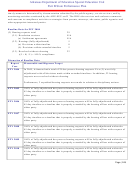 251
251  252
252  253
253  254
254  255
255  256
256  257
257  258
258  259
259  260
260  261
261  262
262  263
263  264
264  265
265  266
266  267
267  268
268  269
269  270
270  271
271  272
272 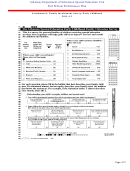 273
273  274
274 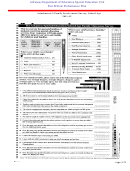 275
275  276
276  277
277 Arkansas Department of Education Special Education Unit
Part B State Performance Plan
tracked to determine effectiveness related to student performance. P.O.I.S.E. Technical Advisory Teams
will coordinate interventions based upon disaggregated data. The IDEA Data & Research Office will
develop an evaluation methodology for the C.O.R.E. project.
Additional activities aimed at improving secondary transition will be conducted throughout the year by the
P.O.I.S.E. staff.
The Secondary Transition Team Training and Events include:
• Training on how to use the Indicator 13 checklist provided by the National Secondary Transition and
Technical Assistance Center (NSTTAC) in districts throughout Arkansas. Data obtained will be used
to improve transition services. This is included in a comprehensive assessment training provided to
teachers. Teachers are given the complete toolkit from NSTTAC on the Indicator 13 checklist.
• Continued partnership with the National Secondary Transition and Technical Assistance Center to
improve transition services and ultimately improve student post-school outcomes. NSTTAC is also
working with the State secondary transition team in a “Focus” school, West Memphis High School.
In particular, the team is working closely with the LEA Supervisor, the Transition Coordinator for
West Memphis High School and a Special Education teacher in implementing a Transitions Class.
NSTTAC along with the team from the Arkansas Transition Services is providing financial and
technical assistance. Data will be collected and reported to determine what tools, assessments,
curricula and practices were most effective.
• Participation in the Arkansas Youth Leadership Forum. This event is put on by Arkansas
Rehabilitation Services and information for one of the sessions is presented by a transition
consultant. This forum is designed to assist high school students with disabilities to learn leadership
and self-determination skills. In the transition session students are provided the opportunity to learn
the importance of disability awareness, goal setting, and self-advocacy skills they will need for post-
secondary education and the work place.
• The website went online in 2006 and in 2008 the website was
redesigned and received a new name, Arkansas Transition Services, located at
Each transition consultant has a focus area and one consultant serves
as the webmaster. The website is continually updated.
• Person-Centered Planning Training and facilitation of meetings.
• Training for districts on "How to Develop a Transitions Class." Over 75 new Transitions Classes
have begun in the state since 2007, with approximately 185 teachers and supervisors receiving the
training to date. Each attendee receives a manual that serves as a guide in developing a Transitions
Class.
• Transitions II Class Training is being developed. This training assists teachers in designing unique
programs to enhance student growth and outcomes. Teachers are provided a workbook and receive
in depth training and tools on how to successfully recruit employers in their areas. The training
focuses on incorporating a community based program into a student’s transition plan when that need
is indicated.
• Self-Advocacy Strategy Training: The Self Advocacy Strategy is a motivation and self-
determination strategy designed to prepare students for participation in education or transition
planning conferences. The strategy consists of five steps which are taught over a series of seven
acquisition and generalization stages. The five steps are presented using the mnemonic "I PLAN" to
help cue students to remember the steps for the strategy. Five districts are known to have purchased
the curriculum. The strategies are linked to the Indicator 13 Checklist as follows:
o Item #1: Student participation in identification of postsecondary goals
Page | 176
ADVERTISEMENT
0 votes
Related Articles
Related forms
Related Categories
Parent category: Legal









